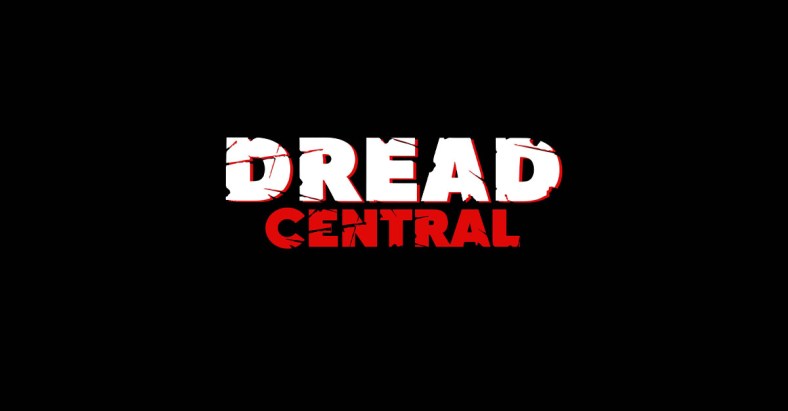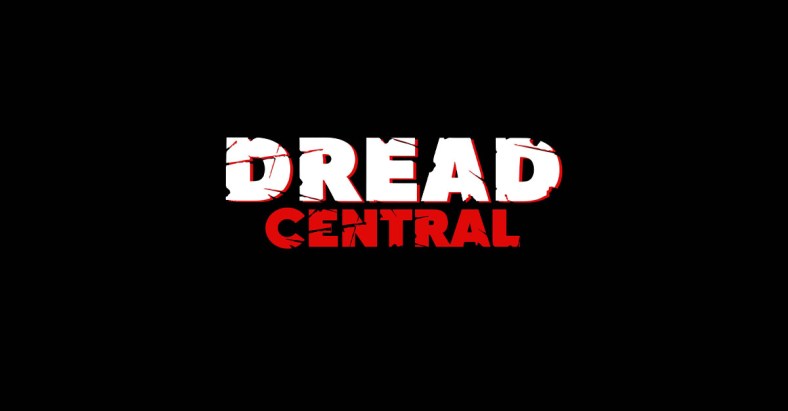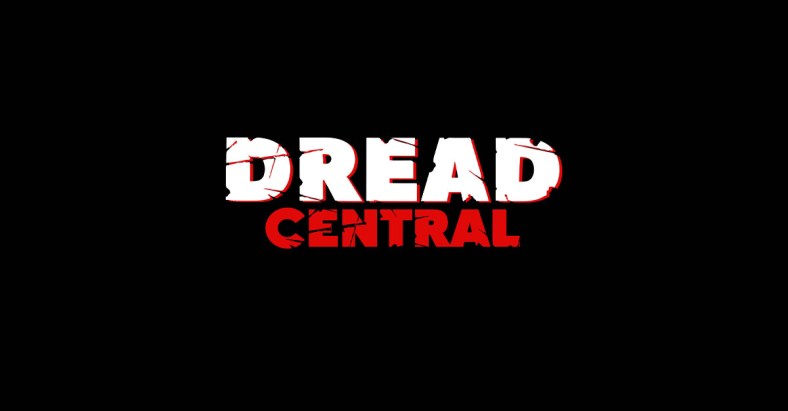Exclusive: Preston Fassel on Grindhouse Cinema and his New Novel THE DESPICABLE FANTASIES OF QUENTIN SERGENOV


Preston Fassel is an author and journalist primarily known for his work in the horror and crime genres. His articles have appeared in FANGORIA, Rue Morgue, Scream magazine, and Cinedump.com. In the horror circle, Preston perhaps may be best known for his debut novel, Our Lady of the Inferno, a blood-soaked romp through the gritty streets of New York’s 42nd Street during the ’70s. In his latest novel, The Despicable Fantasies of Quentin Sergenov, Preston takes on the world of pro-wrestling but with a very Preston-twist…
Related Article: OUR LADY OF THE INFERNO Novel Published by Fangoria to be a Feature Film
The protagonist of this dazzling second act is, Quentin Sergenov, a hero of the 90s wrestling scene who falls from grace on account of his homosexuality in an institutionally homophobic social scene of pro-wrestling. Destitute and washed up, Quentin’s desperation leads him to dirty dealings with Nazi scientists, internet celebrities, sci-fi groupies, and bodybuilding CEOs until he ultimately finds himself in the midst of a very bloody & terrifying transformation…
I caught up with Preston to discuss his literary career, influences, and new novel!
Dread Central: Preston Fassel Good to see you again!
Preston Fassel: Hey, thanks for having me.
DC: My pleasure. So I’m actually a big Salman Rushdie fan, and I feel like you’re kind of becoming the Salman Rushdie of horror. Just in the way you’re able to intertwine so many different characters and mini-stories into this one comprehensive narrative that operates as a patchwork of stories that weave together to form something very special. How do you think of your writing style and what were some of your formidable influences?
PF: One of my big influences is E.L. Doctorow, specifically his book, Billy Bathgate. I read that in high school and was just absolutely blown away by the writing style. I didn’t know that a narrative voice could sound like that, or have that kind of power and energy. And then shortly after that, I read The Hours by Michael Cunningham and that’s told in this very non-linear type of way. Shifting between these three different time periods, three different focal characters, and also told in the present tense.
The fusion of those two books and those two authors’ writing styles really helped to inform and create what has become my narrative voice. You talk about all these different interweavings of stories and characters, and I’m glad to hear that comes off effectively because that’s something I’ve always wanted to do.
DC: You seem to have a real fascination and appreciation of 1970’s-era 42nd Street but you didn’t grow up in New York, though you seem to know it really, really well. Can you explain where your appreciation for 42nd Street came from? I mean, clearly, you’re a big grindhouse fan, which I want to get into, but why 42nd Street?
PF: So this one year in high school, the winter that I was 17 there was this big winter storm that rolled into Tulsa Broken Arrow, where I went to high school and they canceled all the classes for like the next four days. I went to Hollywood Video and I was in the process of renting all of the movies from the cult section. And for anybody out there, who never had Hollywood Video, they had this one section at the back of every store that was just labeled Cults. And I really think that it was at the unique discretion of whoever worked at any given individual store, what movies actually got put there.
It was the catch-all for stuff that they weren’t really sure where else to stick. So that’s where I first saw Women on the Moon, where I first saw Dr. Strangelove and A Clockwork Orange, Freaks, Blue Velvet, etc. I was just renting every single thing from there in no particular order whatsoever, whichever video box happened to catch my eye when I went in is what I would rent.
And I go in and rent an armload of movies. And one of them is called Heartbreak Motel. Right there on the cover of the box is Shelley Winters, and she’s holding the dead, bloody body of a guy in an Elvis costume. And I see this and I just think to myself, what the hell is this? I’ve got to watch it. I finish Heartbreak Motel, and I’m still thinking to myself, “what the hell is this?”. It is one of the sleaziest, weirdest movies that I have ever seen. It’s not something I necessarily recommend to people, unless you want something that’s very morbid, fallacious, and very unrepentant about its own nastiness. But I was just really fascinated.

This is around 2002, 2003, earlyish days of the internet. And I find this book and it’s the only piece of information I can find anywhere online about this movie. The book is called Sleazoid Express. I order it, and before this, I had never heard of a grindhouse movie. Never heard the phrase, exploitation cinema. So I read this book by this guy, Bill Landis and his wife, Michelle Clifford, they were sort of the Hunter S. Thompsons of the 42nd Street grindhouse scene. They didn’t just write about the movies that they saw, they wrote about the experience, seeing the movies, and it’s in this very stream of consciousness way with very out there details.
So you can be reading this and it’s like ‘I went and saw Videodrome and I was high at the time… my nose started to bleed because I’d snorted too much coke. And then the guy sitting next to me in the balcony, overdosed and fell over dead, and they had to cart his body out of the theater. I give the movie two stars.’ And it was just this very immersive and kind of punk rock exploration of that scene and it just opened my eyes to this whole kingdom of the damned that had existed before I was even born.
From that point forward, I just fully immersed myself in anything and everything 42nd Street, I could get my hands on. One of the things that’s always fascinated me about Paul Thomas Anderson’s movies is how he looks at these subcultures and how they are these sort of family of these miscreants and misfits that all find one another and come together and form their own communities with their own rules and their own like kabbalistic codes of conduct. 42nd Street was that on this larger scope. Like this, this weird idea, that 42nd Street itself constituted its own subculture. And that was just endlessly fascinating to me.
DC: Clearly your writing has a huge grindhouse influence, any favorite grindhouse movies?
PF: Maniac just is such a perfect piece of cinema capturing an environment and capturing an experience of something. And I really feel like that you watch that movie and there’s a palpable sense of danger that comes off the screen. And then Michael Mann’s Manhunter. I know that’s probably a little bit more mainstream and not quite grindhouse, but just aesthetics of that and the way he uses those hyper real early 80s lighting and visual schemes in order to tell the story.
And this is one that I wish more people knew about is there’s this British exploitation film called Mumsy, Nanny, Sonny and Girly. And it was directed by Freddie Francis. It was the only movie of his that he got a final cut on and he maintained for the rest of his life, that it was his own personal favorite film of his, it had this very torrid backstory.

It has this British incest blue blood interbreeding going on and takes on the British aristocracy and the idea that all these people are inbred. This was kind of at the height of Swinging London. And the old crust was starting to be a little bit nervous about just how sleazy and sexy cinema was getting. And so Mumsy, Nanny, Sonny, and Girly got pulled from the cinemas and more or less blacklisted at the same time. And then Mumsy, Nanny, Sonny, and Girly was retitled as just Girly and comes over to the United States. Premieres on 42nd Street and actually turns a profit over here.
DC: Because we had an appetite for sick shit.
PF: Yeah. The best analogy for it is the Adams Family with murder. It’s actually a very fun movie.
DC: Yeah and I feel like one of the most compelling elements of grindhouse movies is the tone that some of these movies have. There’s a nihilism, a lawlessness, a palpable danger. I was watching Cannibal Holocaust the other day, and, just the power of that movie is overwhelming. It’s been a while since I’ve been watching something and actually felt scared or threatened in any but that movie and a few other grindhouse films have this palpable danger, that movies just don’t seem to have anymore.
PF: There was this total creative freedom and that you could do anything within these movies that you wanted to in the act of making them and the content of them was inherently subversive. I think that’s one of the reasons why Hereditary was so notable. With the kid that got her head taken off by that telephone pole…. you just don’t do that! And then here, Ari Aster comes and he does it. And it’s that subversivity you just don’t really see so much anymore in horror films. You may see violence and you may see stuff that is provocative, but is it really subversive anymore? I think that’s what was so unique about the Grindhouse era.
DC: Let’s talk about the new book, The Despicable Fantasies of Quentin Sergenov. What was the inception of the story and how did the book come together?
PF: So my brother and I lived in Oklahoma and noticed everyone was Nondenominational and going to these different mega churches and talking with the same, very heavily coded buzzwords and turns of phrase, like, ‘gay agenda’ or your ‘purity rings.’ And I had never seen anything like this before, and it was a big shock to me because I come from a fairly liberal family. To suddenly be thrust into this environment was very jarring.
A big thing was homophobia. It’s this sin that you can unite against and as far as the locals thought, gay is the enemy. And there was this pervasive fear of even appearing gay, like guys did not hug for that reason. They were very touchy about certain displays of emotion. Anything that could potentially read as gay was verboten. And so my brother and I started reminiscing on all these guys that we went to high school with and how homophobic they were and how scared they were of this appearance of gayness. But they were also all huge wrestling fans.
It’s like the one thing that all the guys in school had in common, even me, we all loved wrestling. And my brother are talking and it’s like, these guys won’t hug one another because they think that makes them gay but then they’ll spend three hours every Monday nights watching sweaty, half naked, oiled up, men grappling one another and grunting in the ring. And it’s just, you know, this is a very aesthetically homoerotic thing. I can’t remember which one of which one of us who said it but one of us said, you know, if any of these guys ever found out that one of these wrestlers were actually gay, they would probably just kill themselves. And from that, I just started coming up with this really crazy story. And I said, okay, what would happen if one of these guys did come out, what would the fallout from that be?
My brother is great as a creative muse for me, because he’ll always push me to go even crazier than the direction I am already headed in. And so by the time this talk was finished, we had this guy get blacklisted and he’s homeless, then he runs into these Nazi scientists and dinosaurs get involved. And it just turned into this really super crazy off the wall story.
I was very much into John Waters at that time. Just the way that John Waters tells a story and the way that he has these burlesques that at the same time, have this real core of humanity to them beneath all of the filth and the absurdity, that really appealed to me. And so when I sat down and started writing and telling that story, I really wanted to do it in homage to John Waters’ style of filmmaking and kind of my thought going into it was: what if, after Female Trouble, some lunatic producer had dumped millions of dollars into John Waters’ lap and said ‘make me a horror movie.’ I wanted to create what would have come out the other end of that.
DC: Holy shit, who wouldn’t want to read that!! Well Preston, huge congratulations on the book, I’m a big fan and will be anxiously awaiting whatever you do next.
PC: Thanks so much!

Categorized:Interviews News

